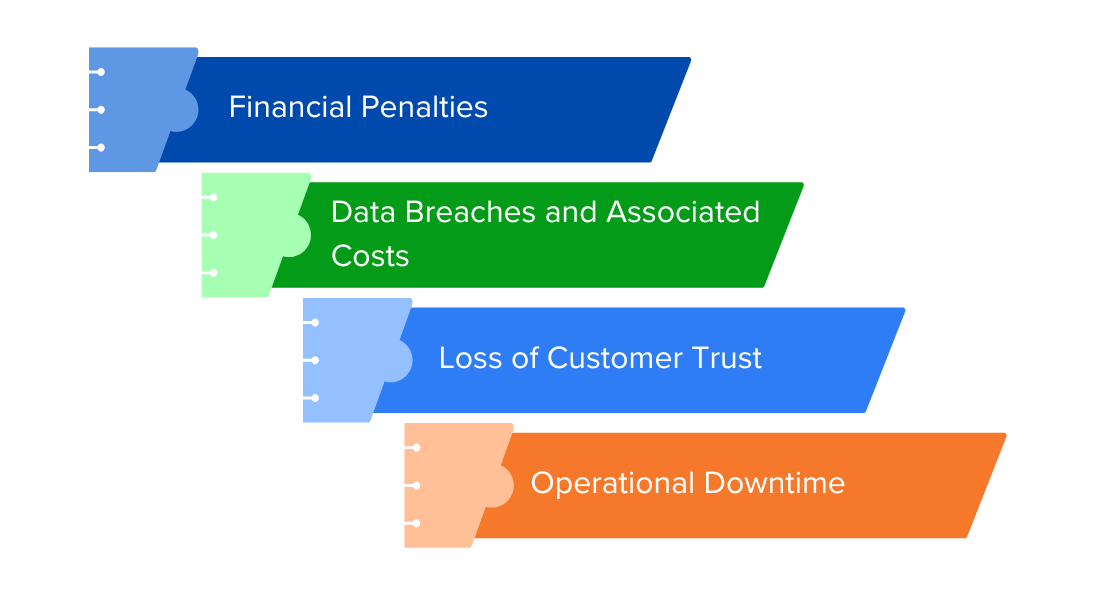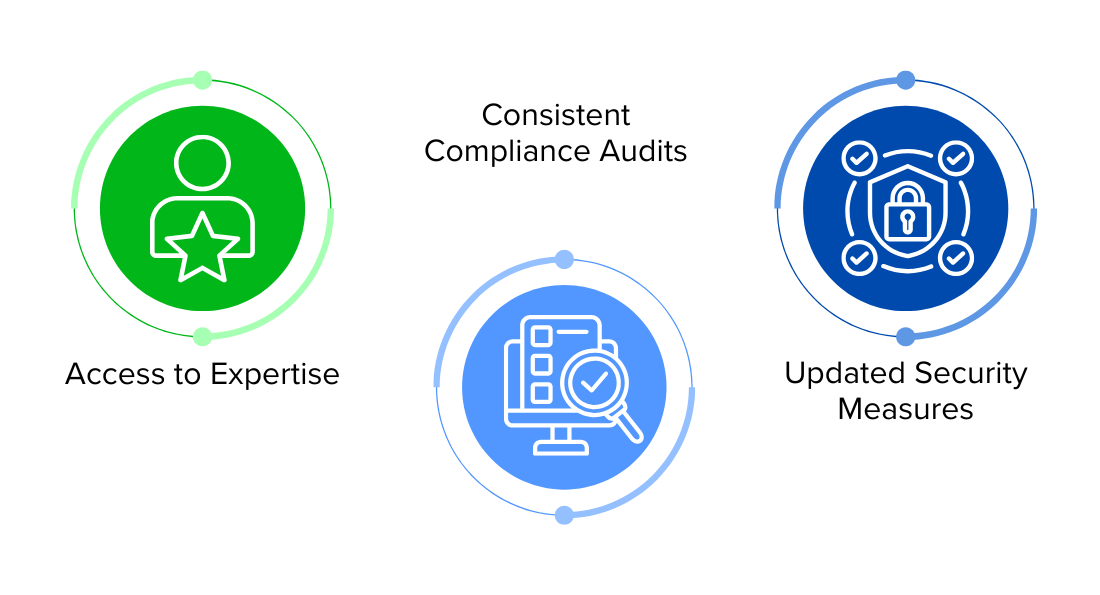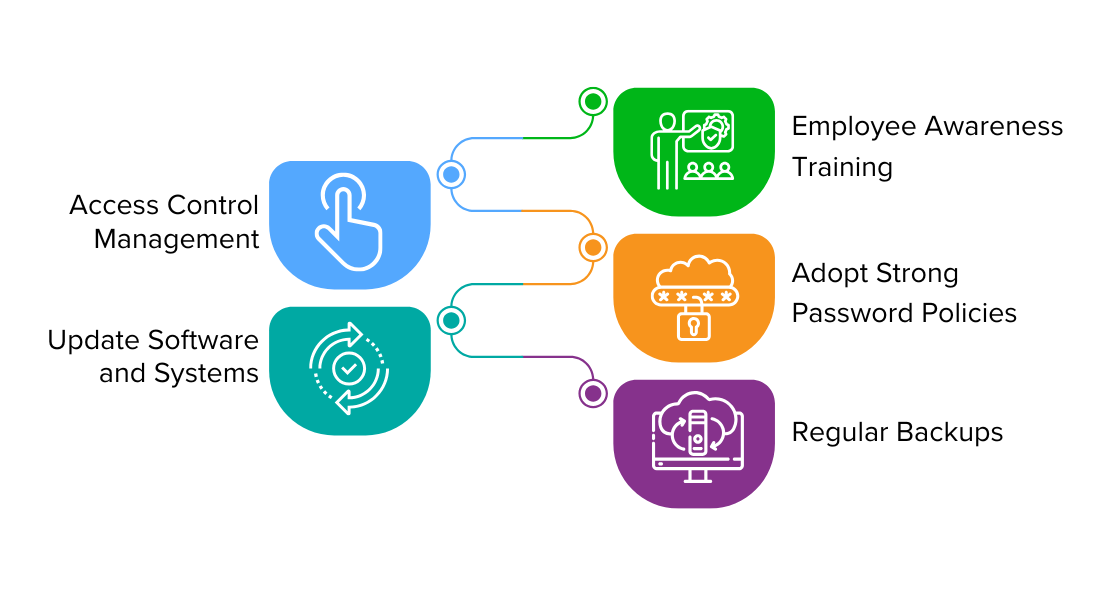Why Cybersecurity Compliance Should Be a Top Priority for SMEs
For small and medium-sized enterprises (SMEs), cybersecurity is not just a technical issue; it’s a fundamental business imperative.

Cyberattacks are no longer a concern solely for large enterprises. Due to perceived vulnerabilities and lower investment in cybersecurity measures, SMEs are increasingly becoming prime targets for cybercriminals. A single data breach or security incident can lead to serious financial losses, reputational damage, and, in some cases, business closure. Ensuring cybersecurity compliance helps SMEs protect their assets, safeguard customer trust, and maintain growth in a secure environment.
The Risks of Non-Compliance and the Costs of Data Breaches
Failure to comply with cybersecurity regulations exposes SMEs to numerous risks, including:
- Financial Penalties: Regulations such as GDPR and HIPAA mandate stringent penalties for non-compliance. Even a minor oversight can lead to significant fines, which could financially cripple an SME.
- Data Breaches and Associated Costs: The aftermath of a data breach can be devastating, with costs related to legal actions, data recovery, and compensating affected parties. According to industry studies, the average data breach cost for SMEs can be hundreds of thousands of dollars, making recovery a significant challenge.
- Loss of Customer Trust: Customers are increasingly concerned about how their data is being handled. A security incident can damage customer trust and impact long-term relationships, reducing business opportunities.
- Operational Downtime: A cyberattack can lead to interruptions in business operations, causing productivity loss and a delay in meeting customer expectations, which, in turn, can hurt growth prospects.

How Managed Services Help SMEs Stay Compliant
Given the complexity of the regulatory landscape, keeping up with cybersecurity requirements can be overwhelming for SMEs. Managed services are an effective solution that helps SMEs ensure compliance in several ways:
- Access to Expertise: Managed service providers (MSPs) bring specialized knowledge that may not be available in-house, particularly in SMEs. This expertise is crucial in navigating complex compliance requirements and implementing the right measures.
- Consistent Compliance Audits: MSPs conduct regular assessments to identify gaps in compliance, offering a clear roadmap to fix vulnerabilities before they become an issue. These audits help SMEs maintain compliance cost-effectively without requiring full-time internal resources
- Updated Security Measures: Cybersecurity regulations are evolving, and managed services ensure SMEs remain compliant by proactively implementing updates and changes to policies and technologies as required.

The Benefits of Continuous Monitoring and Compliance Tracking with Batoi Telemetry
To manage cybersecurity effectively, it’s essential to have a system in place for continuous monitoring. Batoi Telemetry provides SMEs with:
- Real-Time Visibility: Batoi Telemetry offers real-time monitoring of cloud assets and systems, enabling SMEs to instantly track performance and identify suspicious activity. This proactive approach reduces the likelihood of data breaches.
- Compliance Tracking: Batoi Telemetry helps businesses monitor compliance status against various regulatory requirements. The tool continuously assesses and reports on compliance, providing peace of mind and reducing the risk of missed updates or outdated practices.
- Incident Management: In the event of a potential security incident, Batoi Telemetry helps SMEs quickly respond, mitigating damages before they escalate. This quick response mechanism is critical to maintaining operational continuity and protecting customer data.
Tips for SMEs to Improve Their Cybersecurity Posture
While managed services and tools like Batoi Telemetry are vital, SMEs can take several steps internally to strengthen their cybersecurity posture:
- Employee Awareness Training: One of the most effective measures is training employees to recognize phishing emails, avoid suspicious links, and understand basic cybersecurity practices. A well-informed workforce is often the first line of defense.
- Adopt Strong Password Policies: Ensure employees use strong, unique passwords and implement multi-factor authentication (MFA) to protect sensitive accounts.
- Regular Backups: Schedule regular data backups and test these backups to ensure recovery capabilities are in place in case of a cyber incident.
- Update Software and Systems: Regularly update all systems and software with the latest patches to avoid vulnerabilities. Outdated systems are among the most common targets for cyberattacks.
- Access Control Management: Ensure access to sensitive information is granted only on a need-to-know basis. Limiting access reduces the risk of internal data breaches.

In today's digital landscape, cybersecurity compliance isn't optional—it’s a necessity for SMEs to survive and thrive. With the risks of non-compliance and the growing costs of data breaches, it's crucial to prioritize a robust cybersecurity posture. Managed services and tools like Batoi Telemetry can provide the expertise and continuous monitoring needed to keep SMEs secure and compliant.
Connect with Batoi today to schedule a free compliance audit and take the first step toward securing your business against cyber threats. Together, let’s build a resilient foundation for your business’s success.
This article has been published on LinkedIn.
Add your comments and queries
Share feedback, questions, or corrections. We read every message.
